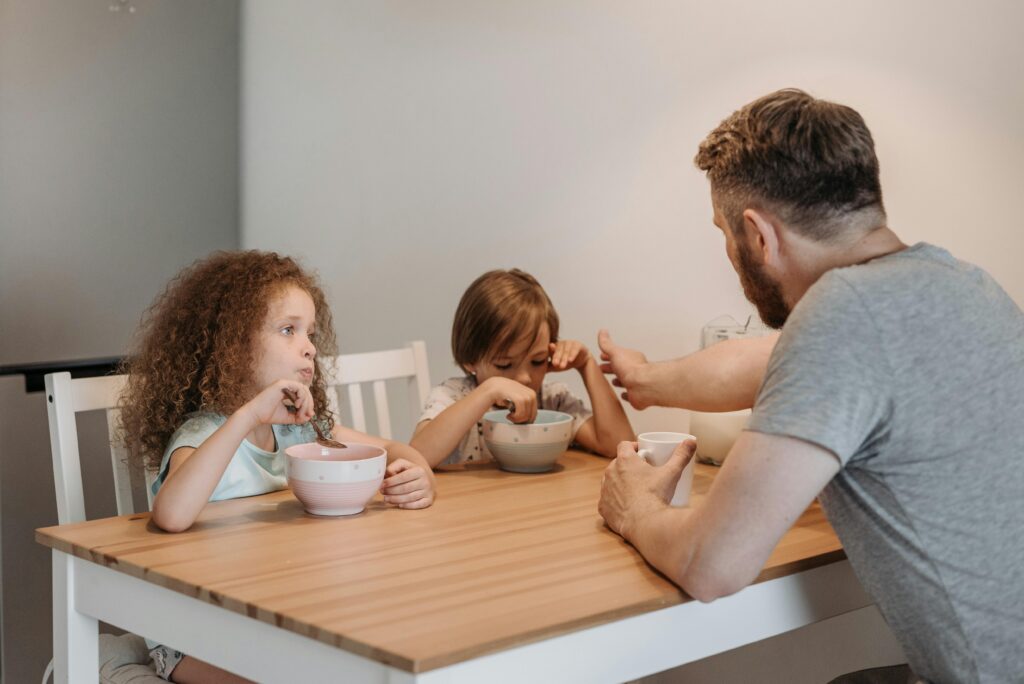Deciding to enter rehab is one of the most courageous choices a parent can make. It’s a step not only toward healing, but toward building a stronger, more stable future for your family. For parents, though, especially those with young or dependent children, this choice often comes with worry: How will my children cope while I’m away? How do I tell them? At Harmony Junction Recovery, we understand the emotional weight of this transition. With the right preparation, honesty, and support, you can help your children navigate this time with resilience and trust.
Choosing the Right Time and Words
One of the most important steps in preparing your children is having an open and honest conversation about your upcoming stay in rehab. The way you approach this talk will depend heavily on their age, maturity, and emotional understanding. While young children may not need all the details, they do need reassurance. Older children and teens may require more context and time to process the information.
Choose a quiet moment when your children feel safe and comfortable. Begin by affirming your love for them and then explain that you are going to a special place to get help so you can be a better and healthier parent. Emphasize that your time away is not because of anything they did, and that your decision is about taking care of yourself—so you can take better care of them.
You don’t need to use words like “rehab” if you feel it will confuse or frighten them. Terms like “treatment,” “healing,” or “health program” can be gentler alternatives, especially for younger children. What matters most is that your explanation comes from a place of calm, clarity, and compassion.
Creating a Plan They Can Rely On
Children thrive on routine and structure, so the uncertainty of a parent being away can be deeply unsettling. That’s why creating a solid care plan in advance can help reduce anxiety. Whether your children will be staying with a grandparent, co-parent, close family friend, or other trusted adult, make sure the arrangement is clearly communicated and introduced ahead of time.
Talk with your children about who will be taking care of them, where they’ll be staying, and what their daily routine will look like. Let them know when they can expect to talk to or hear from you, if your treatment program allows communication. Offering them this kind of predictability provides comfort and helps them feel less alone in the transition.
You might also consider giving them a calendar or visual aid to count down the days until your return. Even simple things like packing a familiar stuffed toy, a handwritten note, or recorded messages can offer daily reassurance and help keep the connection alive while you’re apart.
Encouraging Emotional Expression
It’s natural for children to feel a mix of emotions—confusion, sadness, anger, or even relief—when they learn their parent is going to rehab. These feelings are valid, and it’s important to create a space where your child feels safe expressing them. Let them know it’s okay to talk about how they feel and that you’re proud of them for being honest, even if what they’re feeling is hard to hear.
Children often internalize stress or blame themselves for changes around them. Gently remind them that your decision to seek treatment is yours alone, and that it’s something you are doing to become a stronger and healthier parent. If possible, involve a school counselor, therapist, or support group to help your child process their emotions while you’re away.
At Harmony Junction Recovery, we can also connect families with child-focused counselors or local family services to ensure your child has access to emotional support during your treatment period.
Staying Connected While Apart
While your primary focus in rehab will be healing, staying emotionally connected with your children can make the time apart more bearable for both of you. Depending on the policies of your rehab program, you may be able to write letters, make phone calls, or have supervised visits.
Even small gestures, like sending drawings, voice messages, or notes, can help remind your children that they are in your thoughts. These touchpoints can reinforce your love and create a sense of continuity. If direct communication isn’t possible, consider leaving behind small reminders—photos, keepsakes, or daily affirmations—to give them a sense of your presence.
At Harmony Junction Recovery, we support family-friendly approaches and, whenever appropriate, encourage maintaining healthy communication with children throughout the recovery process.
Laying the Groundwork for Reunion
Your return home is a significant milestone—not just in your recovery, but in your family’s journey together. Preparing your children for this reunion is as important as preparing them for your absence. Let them know when you’ll be coming back and what they can expect once you’re home. Be honest about the changes you’re working on and encourage open conversation about what they’re feeling as your return approaches.
Rebuilding routines, creating new family traditions, or celebrating small victories together can help make the transition smoother. Recovery isn’t just about abstaining from substances—it’s about becoming a more present, grounded, and connected parent. And that growth is something your children will notice, even if they don’t fully understand the path you’ve taken to get there.
At Harmony Junction Recovery, we believe that healing is a family journey. By preparing your children with care, honesty, and emotional support, you’re laying the foundation for a stronger bond and a brighter future—for all of you.
